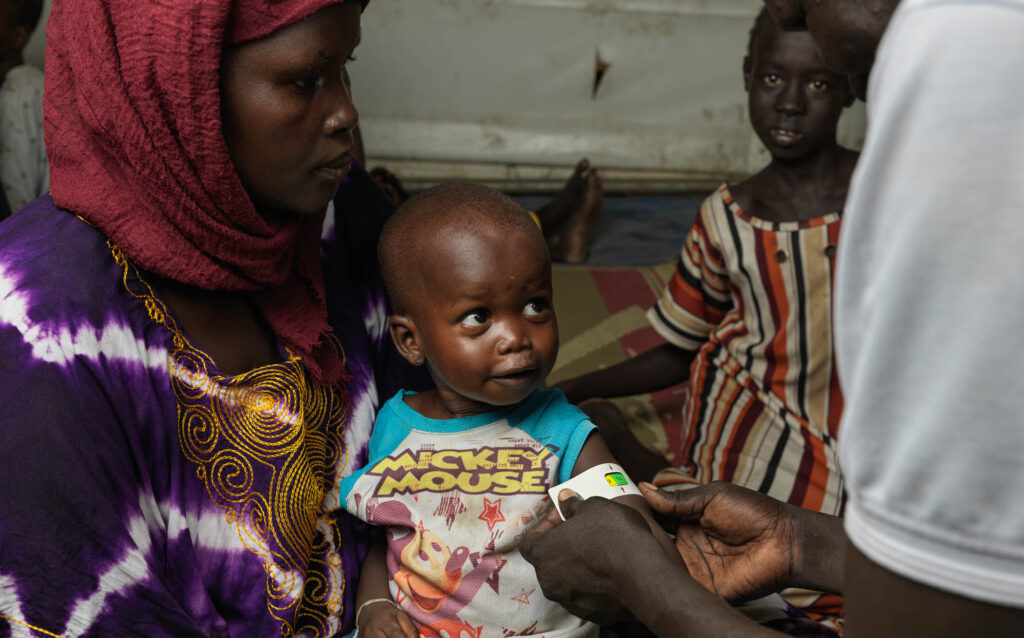Families in communities across South Sudan are facing the threat of malnutrition, with an estimated 7.7 million people—57% of the population—at risk for acute food insecurity, according to UNICEF. Ongoing conflict, extreme weather, rising food prices and lack of access to healthcare create a challenging environment in which to raise a family. In the face of these challenges, community leaders volunteer with our nutrition team to help combat this crisis.
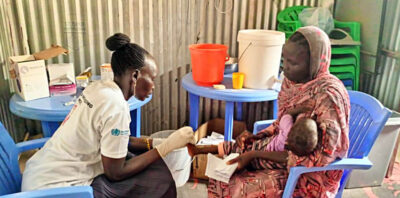
“International Medical Corps takes a holistic, community-based approach to its programmes,” explains Logworong Alex Duku, International Medical Corps’ Nutrition Program Manager in South Sudan. “We not only treat the patient suffering from malnutrition but also provide long-term health support through malnutrition-detection training, cooking demonstrations and kitchen-gardening programmes. Community nutrition volunteers, and the training they receive, are an essential part of our approach.”
The South Sudan Ministry of Health recruits community nutrition volunteers (CNVs) through local county health departments, while International Medical Corps trains and supervises them at dozens of nutrition sites across the country. CNVs identify malnourished children in their communities and train mothers and other caregivers to diagnose malnutrition using the Family MUAC Approach, where caregivers are given a measuring tape to measure their children’s mid-upper arm circumference (MUAC) to help determine if they are malnourished. This approach was created during the COVID-19 pandemic, when social distancing and travel restrictions made it difficult for health workers to operate in communities.
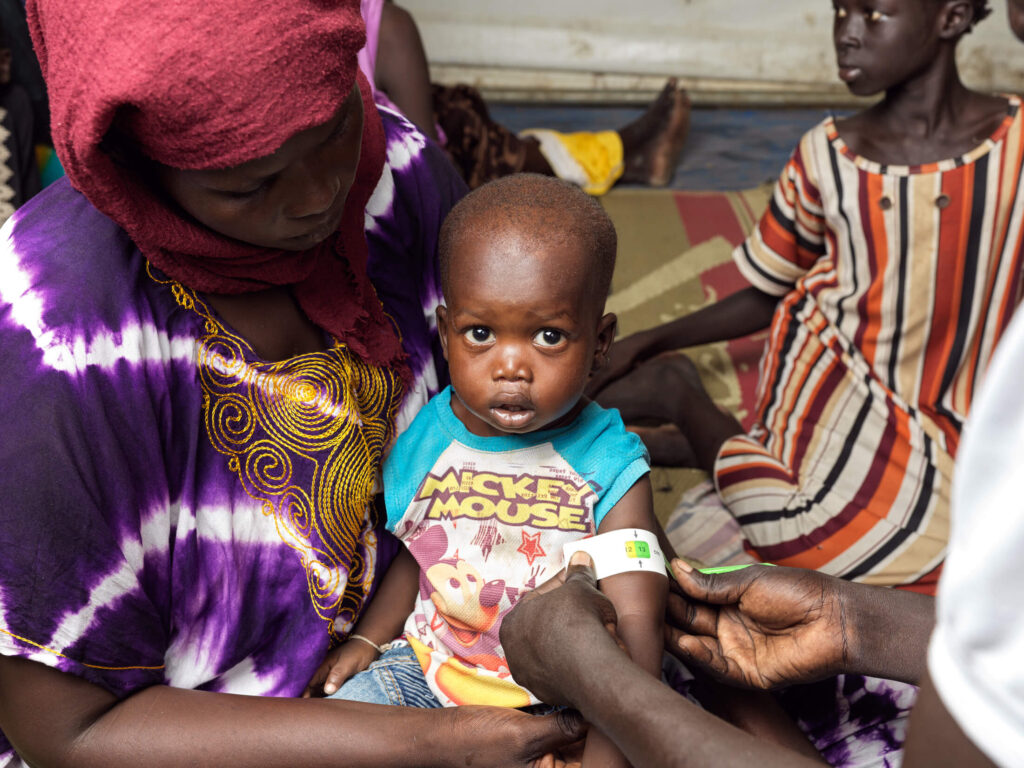
CNVs also promote diverse, healthy eating practices to help ensure that every family has access to nutritious meals, and some participate in local vaccination campaigns.
In Malakal, a city along the Nile River in the northern area of the country, one of these volunteers is Ernes George Deng.
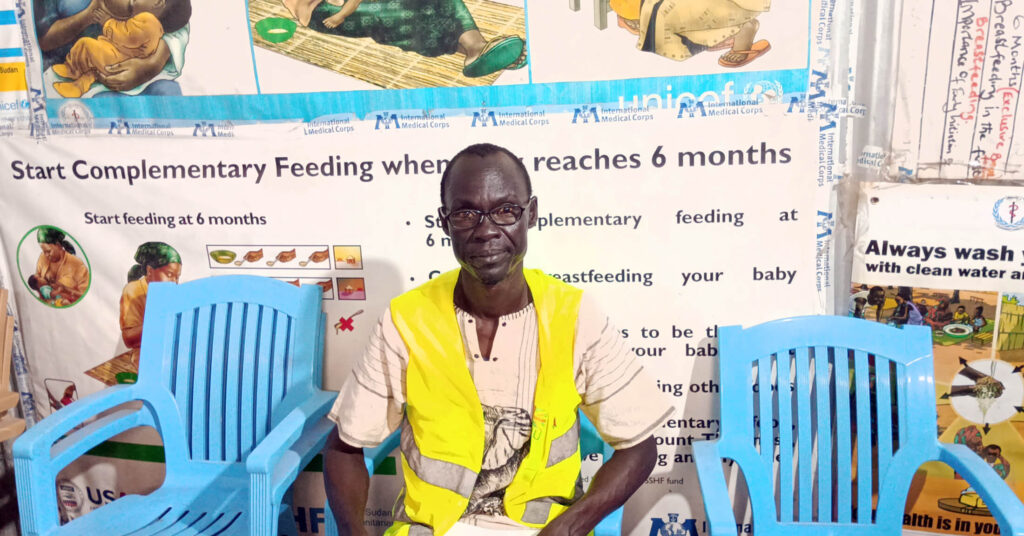
“There was a widow in my community who was suffering,” he remembers. “I screened her children for malnutrition, and one of the children was malnourished. I immediately referred the child to one of International Medical Corps’ nutrition sites. The child recovered, and the woman thanked me and International Medical Corps. She said she will not forget how we helped her.”
In the nearby village of Assossa, mother of seven Nyanchot Maker received help from another volunteer. While conducting outreach in the community, a CNV diagnosed Nyanchot’s 18-month-old daughter, Nyanakim, with acute malnutrition and referred mother and daughter to the Assossa Nutrition Site. There, an International Medical Corps team examined Nyanakim, confirmed she was malnourished and provided ready-to-use therapeutic food (RUTF) and amoxicillin.
Our team counselled Nyanchot on good hygiene practices and the importance of continued breastfeeding, and provided her with a water, sanitation and hygiene kit.
“I am thankful to International Medical Corps for helping my daughter recover,” says Nyanchot. “They provided support, food and advice. I have learned how to care for her better, and I now feel confident knowing I can monitor her health at home.”
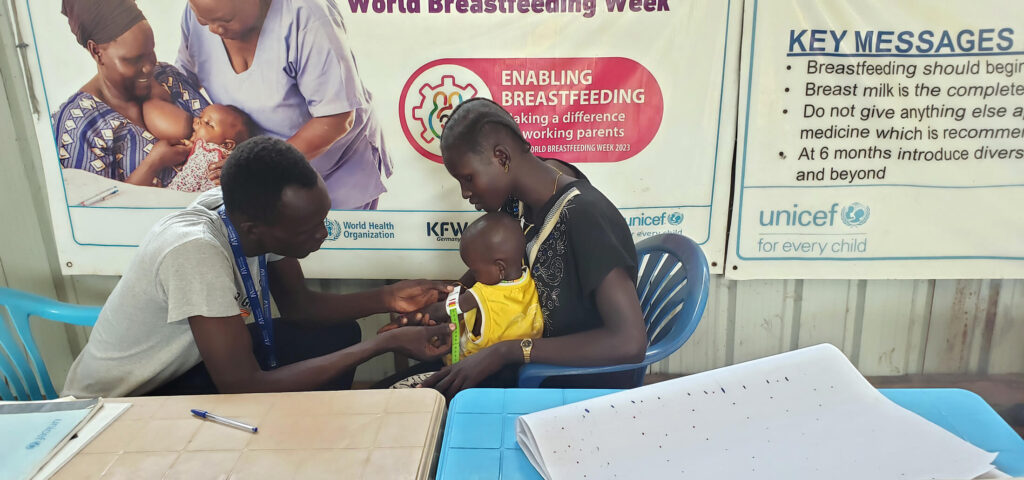
In a village in central South Sudan, Nyaleah Taker Both was facing a similar challenge. Her 15-month-old daughter, Nyaguande Bantor Madiang, remained weak and thin three weeks after being discharged from a local healthcare centre after completing treatment for severe malaria.
Because Nyaleah had been trained in the Family MUAC Approach, she was able to use her MUAC measuring tape to measure her daughter’s arm. The measurement was in the “red zone”—indicating severe acute malnutrition.
Nyaleah quickly brought her daughter to a nearby International Medical Corps nutrition site, where Nutrition Assistant John Gatliah examined Nyaguande and confirmed she was malnourished. He explained the treatment protocol to Nyaleah and provided 21 sachets of RUTF for the week. He also counselled Nyaleah on breastfeeding, complementary feeding and hygiene, advising her to sleep under a treated bed net with her daughter and return in a week. Over the next few weeks, Nyaguande’s health gradually improved until she was discharged from the programme. Nyaleah became actively engaged in cooking demonstrations, kitchen gardening and mother-to-mother support groups, sharing experiences and knowledge with her peers.
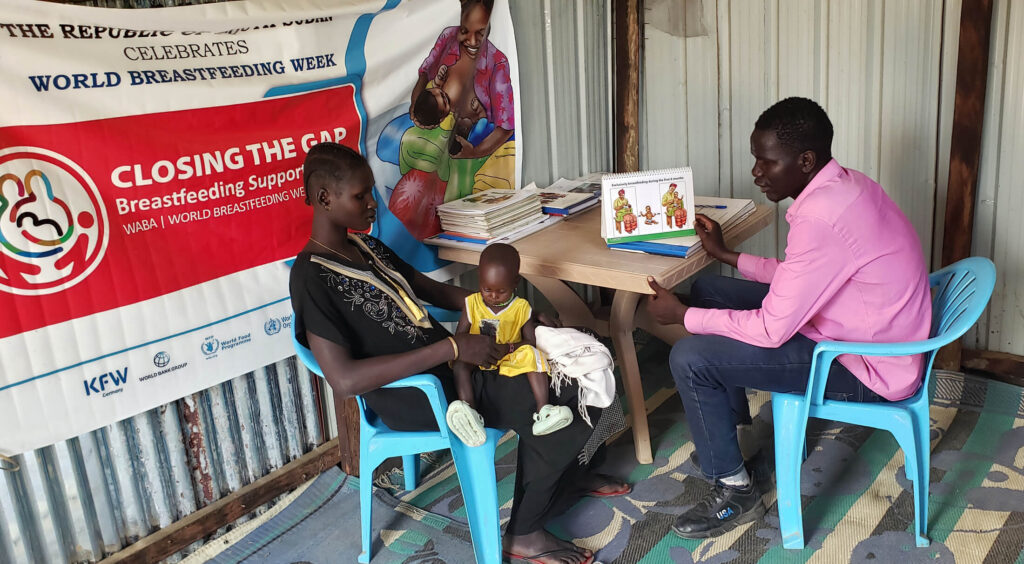
Though they are volunteers, the CNVs receive a stipend for their work. Due to recent funding cuts, the CNV programme in South Sudan has been scaled back, from 187 CNVs to 40. However, the impact of our Nutrition team’s efforts endures. The training these volunteers received has equipped them not just to recognise malnutrition, but to respond with practical, lifesaving solutions. They are now pillars of strength in their communities—educating caregivers, guiding families and spreading knowledge that will outlast any single programme.
Learn more about our work in South Sudan, and donate to International Medical Corps today to help people around the world affected by conflict, disaster and disease.
